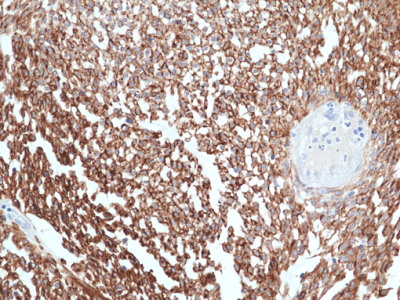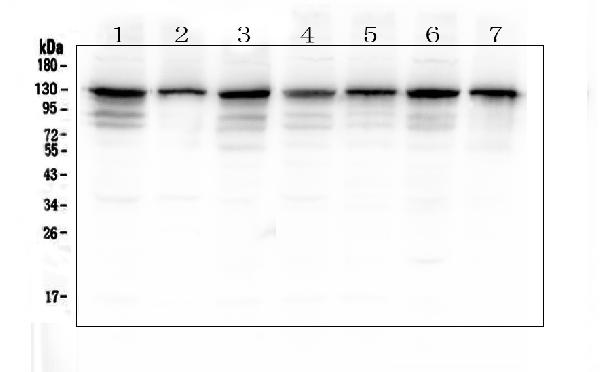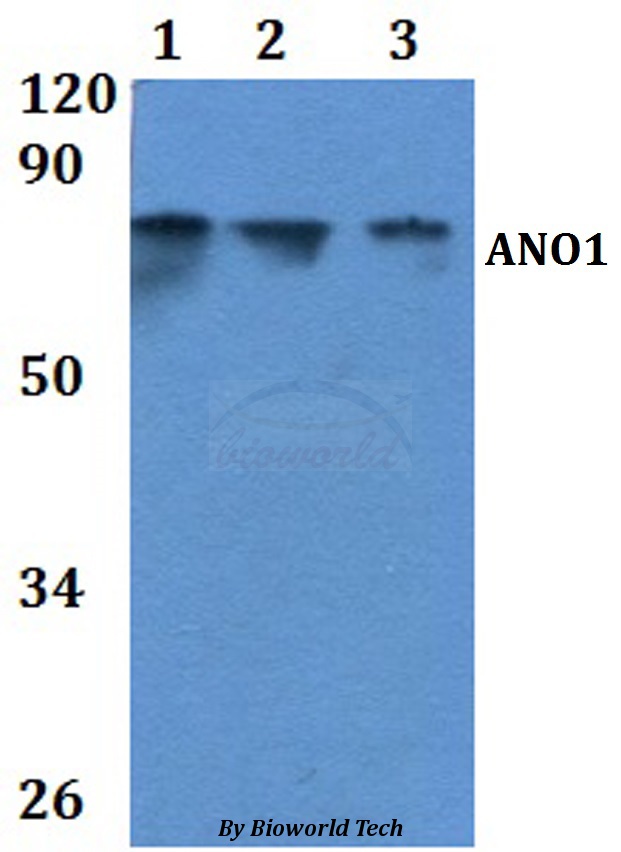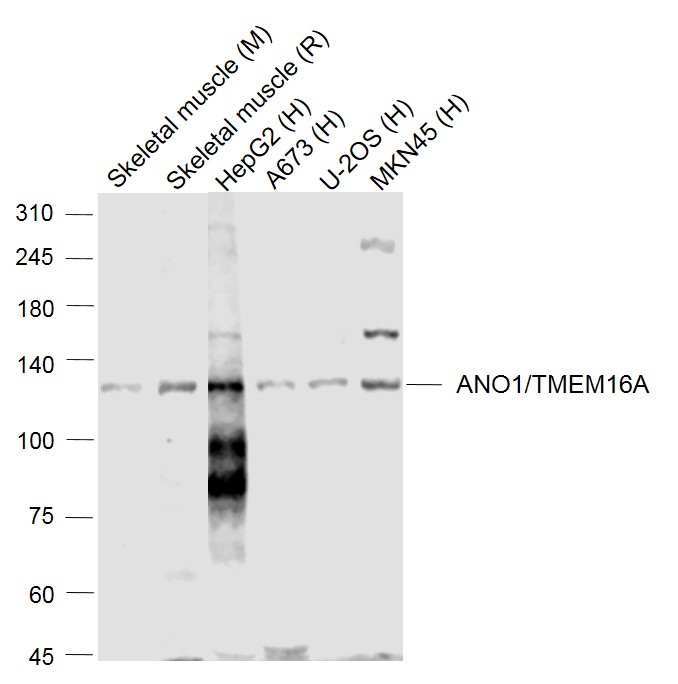
anti-ANO1 (TMEM16A) (human), Rabbit Monoclonal (RM440)
REV-31-1331-00
ApplicationsImmunoHistoChemistry
Product group Antibodies
ReactivityHuman
TargetANO1
Overview
- SupplierRevMAb Biosciences
- Product Nameanti-ANO1 (TMEM16A) (human), Rabbit Monoclonal (RM440)
- Delivery Days Customer2
- ApplicationsImmunoHistoChemistry
- CertificationResearch Use Only
- ClonalityMonoclonal
- Clone IDRM440
- Gene ID55107
- Target nameANO1
- Target descriptionanoctamin 1
- Target synonymsDOG1, INDMS, MYMY7, ORAOV2, TAOS2, TMEM16A, anoctamin-1, Ca2+-activated Cl- channel, anoctamin 1, calcium activated chloride channel, calcium activated chloride channel, discovered on gastrointestinal stromal tumors protein 1, oral cancer overexpressed 2, transmembrane protein 16A (eight membrane-spanning domains), tumor-amplified and overexpressed sequence 2
- HostRabbit
- IsotypeIgG
- Protein IDQ5XXA6
- Protein NameAnoctamin-1
- Scientific DescriptionANO1 is a calcium-activated chloride channel (CaCC) which plays a role in transepithelial anion transport and smooth muscle contraction. It is required for the normal functioning of the interstitial cells of Cajal (ICCs) which generate electrical pacemaker activity in gastrointestinal smooth muscles. ANO1 acts as a major contributor to basal and stimulated chloride conductance in airway epithelial cells and plays an important role in tracheal cartilage development. Its overexpression was reported in esophageal squamous cell carcinoma and breast cancer progression. - Recombinant Antibody. This antibody reacts to human ANO1. Apllication: IHC. Liquid. 50% Glycerol/PBS with 1% BSA and 0.09% sodium azide. ANO1 is a calcium-activated chloride channel (CaCC) which plays a role in transepithelial anion transport and smooth muscle contraction. It is required for the normal functioning of the interstitial cells of Cajal (ICCs) which generate electrical pacemaker activity in gastrointestinal smooth muscles. ANO1 acts as a major contributor to basal and stimulated chloride conductance in airway epithelial cells and plays an important role in tracheal cartilage development. Its overexpression was reported in esophageal squamous cell carcinoma and breast cancer progression.
- ReactivityHuman
- Storage Instruction-20°C,2°C to 8°C
- UNSPSC41116161








![IHC-P analysis of human gastrointestinal stromal tumor (GIST) tissue using GTX04369 TMEM16A antibody [MSVA-201M] HistoMAX?. DOG1 Tumor periphery of a GIST showing intensive TMEM16A staining in all tumor cells.](https://www.genetex.com/upload/website/prouct_img/normal/GTX04369/GTX04369_20230728_IHC-P_47_23072722_384.webp)